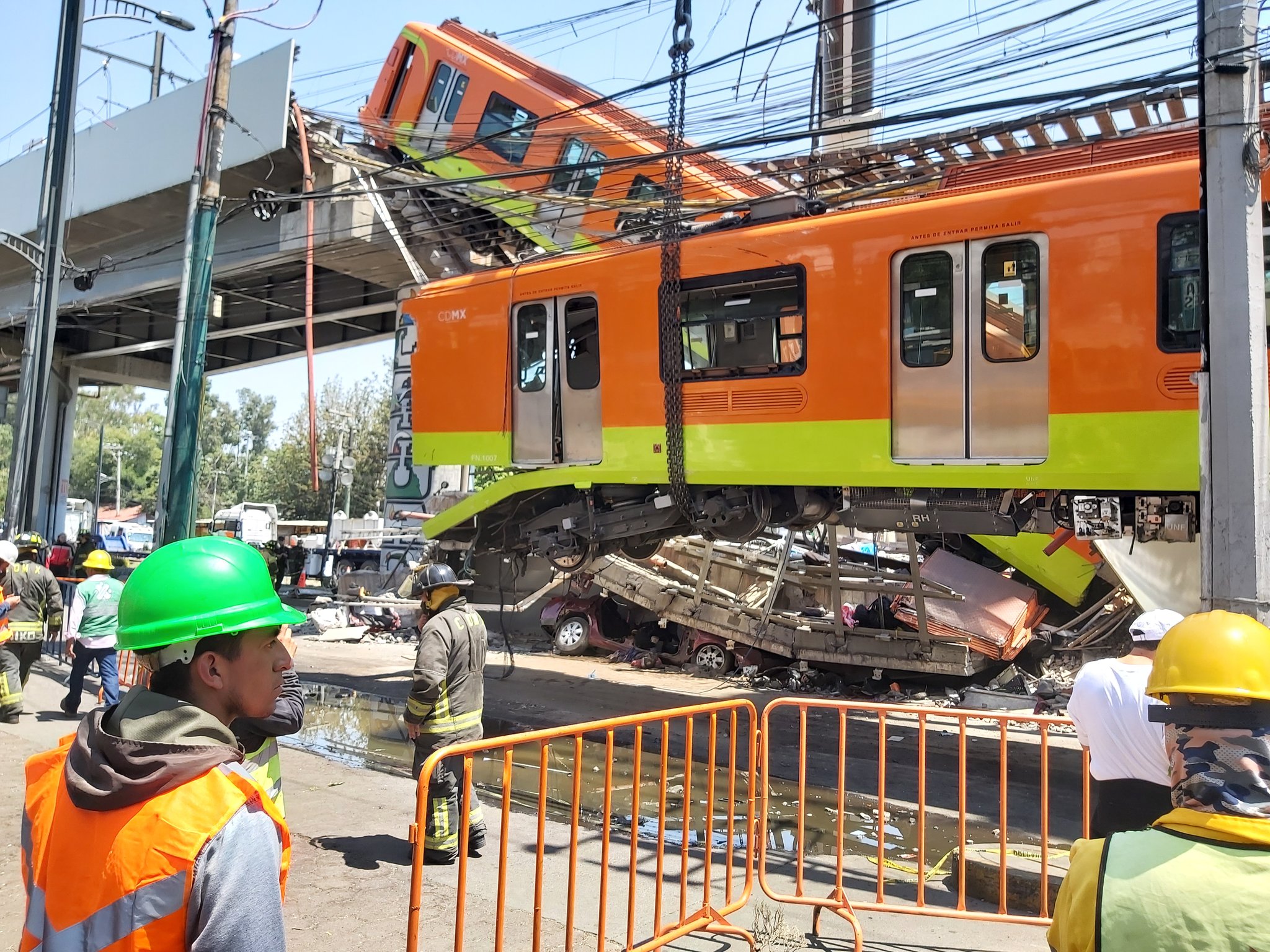Ashley Rogers, Independent Socialist Group (USA)
An overpass carrying a subway train collapsed in Mexico City on 3 May, killing at least 26 people and injuring 80. The train was travelling on an elevated portion of Line 12 when a section near Olivos Station collapsed onto traffic below.
This incident marks the worst disaster in the history of Mexico City’s subway system, the second biggest in North America, which carries four million passengers a day.
Days later, protesters marched to the site of the collapse, chanting ‘Negligence and corruption kill!’ and ‘Let the state fall, not the metro!’ Only a mass movement of workers and youth, with the crucial involvement of unionised metro workers, has the power to demand and win the response workers and victims need.
Line 12 – the ‘Golden Line’ – was the most recent addition to the subway network, announced by then-mayor Marcelo Ebrard in 2007. On its completion in 2012, President Felipe Calderón hailed it as “an engineering feat that competes with the best in the world.” The massive investment was used to justify a fare hike under Ebrard’s successor, Miguel Ángel Mancera.
Yet only two years after the line opened – and only two months after the fare hike – subway director Joel Ortega admitted in a news conference that Line 12 had become too dangerous to ride.
While the line was closed for a year and a half for repairs, Mancera moved swiftly to find scapegoats, disqualifying 33 officials involved in the incident from public service in 2014, and issuing arrest warrants for six officials, including project head Enrique Horcasitas, in 2015.
Horcasitas was accused of using his position to give the contract to construction firm ICA, where his brother is a member of the board of directors.
Yet while Mancera was quick to prosecute minor politicians, the three firms that constructed Line 12 faced no repercussions for their involvement under his term.
While ICA built much of Line 12, the construction company Carso, owned by Mexico’s richest man, Carlos Slim, was in charge of the section that collapsed on 3 May.
Against recommendations from Grupo Riobóo, the engineering firm that designed many of the previous subway expansions, Carso decided against using concrete for the beams of the overpass, preferring to design them out of steel, to cut costs and increase profits by using Carso’s steel subsidiary Swecomex.
Following the magnitude 7.1 Puebla earthquake in 2017, locals noted that the section near Olivos Station had suffered serious structural damage, and the line was again closed. Officials continued to neglect necessary repairs and locals expressed fears that the structure was in danger of collapse.
Fernando Espino Arévalo, head of the Metro Workers Union (STM), stated that a number of problems on Line 12 were reported to authorities throughout the line’s operation, including vibrating support columns on elevated portions of track.
However, the STM’s warnings about Line 12 and their calls to take over maintenance of the line were both ignored. According to Jesús Urban, secretary general of the STM, damage at the section that collapsed was reported six months ago, but their warnings were ignored and subsequent maintenance work was inadequate.
The subway bridge collapse is another horrible example of how the capitalist drive to profit off of human needs like transportation and health care will always come before safety and human life.
The working people of Mexico are the only group with the power to root out corruption, end austerity, and build a movement for safe, efficient, and free mass transportation. Only a revolutionary socialist party in Mexico can lead the fight for public services that benefit everyone as part of the struggle for socialism.
- This article can be read in full on socialistworld.net









